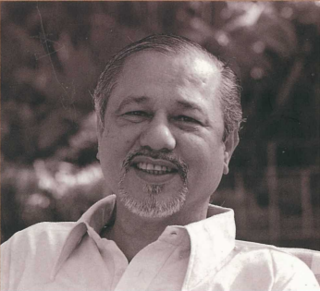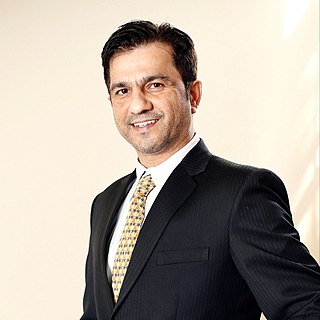Related Research Articles

Bajirao I, born as Visaji, was the 7th Peshwa of the Maratha Confederacy. During his 20-year tenure as a Peshwa, he defeated the Nizam of Hyderabad at several battles like the Battle of Palkhed and Battle of Bhopal. Bajirao contributed to Maratha supremacy in Southern India and Northern India. Thus, he was responsible for establishing Maratha power in Gujarat, Malwa, Rajputana and Bundelkhand and liberating Konkan from the Siddis of Janjira and Portuguese rule. He is considered one of the greatest cavalry generals of India.

The Peshwa was second highest office in the Maratha Confederacy, next in rank and prestige only to that of the Chhatrapati. Initially serving as the appointed prime minister in the Maratha empire, the office became hereditary after the death of Shahu in 1749. During the reign of Shahu, the office of Peshwa became incredibly powerful and the Peshwas came to be the de facto rulers of the Maratha empire. However following the defeat of the Marathas in 1761, the office of the Peshwa became titular as well and from that point onwards served as the ceremonial head of the Confederacy underneath the Chhatrapati.

Irawati Karve was a pioneering Indian sociologist, anthropologist, educationist and writer from Maharashtra, India. She was one of the students of G.S. Ghurye, founder of Indian Sociology & Sociology in India. She has been claimed to be the first female Indian Sociologist.

Balaji Vishwanath Bhat (1662–1720) was the first of a series of hereditary Peshwas hailing from the Bhat family who gained effective control of the Maratha Empire and the Mughal vassals of the Marathas during the early 18th century. Balaji Vishwanath assisted a young Maratha king Shahu to consolidate his grip on a kingdom that had been racked by civil war and persistently intruded on by the Mughals under Aurangzeb. He was called the Second Founder of the Maratha State. He secured a grant from the Mughal court that confirmed Shahu as the legitimate Mughal vassal, at the expense of his rival Sambhaji. Later, his son Bajirao I became the Peshwa.

The Chitpavan Brahmin or the Konkanastha Brahmin is a Hindu Maharashtrian Brahmin community inhabiting Konkan, the coastal region of the state of Maharashtra. Initially working as messengers and spies in the late seventeenth century, the community came into prominence during the 18th century when the heirs of Peshwa from the Bhat family of Balaji Vishwanath became the de facto rulers of the Maratha empire. Until the 18th century, the Chitpavans were held in low esteem by the Deshastha, the older established Brahmin community of Karnataka-Maharashtra region.
Karhaḍe Brahmins are a Hindu Brahmin sub-caste mainly from the Indian state of Maharashtra, but are also distributed in states of Goa, Karnataka and Madhya Pradesh.

Pune district is a district in Western Maharashtra with Administrative Headquarters in Pune city. Pune district is the most populous district in the Indian state of Maharashtra. It is one of the most industrialised districts in India.

Madhavrao II was the 12th Peshwa of the Maratha Empire in India, from his infancy. He was known as Sawai Madhav Rao or Madhav Rao Narayan. He was the posthumous son of Narayanrao Peshwa, murdered in 1773 on the orders of Raghunathrao. Madhavrao II was considered the legal heir, and was installed as Peshwa by the Treaty of Salbai in 1782 after First Anglo-Maratha War.
Visaji Krushna Chinchalkar, popularly known as Visaji Pant Biniwale, was one of the leading generals of Peshwas in Northern India during 1759 to 1772. Peshwa Madhavrao I mainly sought his assistance in his attempt to restore Maratha Empire in the North after the defeat in the Battle of Panipat (1761).
Marathi Brahmins are communities native to the Indian state of Maharashtra. They are classified into mainly three sub-divisions based on their places of origin, "Desh", "Karad" and "Konkan". The Brahmin subcastes that come under Maharashtra Brahmins include Deshastha, Chitpavan (Konkanastha), Saraswat, Karhade, and Devrukhe.
The Bhat Peshwa family earlier known as Bhat family is a prominent Indian Chitpavan Brahmin family who dominated India for around 100 years in the late 18th century and early 19th century. Most of the members in this family were the Peshwas in the Peshwa Era of the Maratha Empire, and Peshwa later became their family name. During their regime, most of the Indian subcontinent was under their control. The last Peshwa, Baji Rao II, was defeated by the British East India Company in the Third Anglo-Maratha War in 1818. The territory was annexed to the British East India Company's Bombay Presidency, and he was pensioned.

Dnyaneshwar Agashe was an Indian businessman, cricketer, cricket administrator and philanthropist. He is best remembered for founding the Suvarna Sahakari Bank in 1969, and the scandal following the bank's alleged scam case in 2008. He played first-class cricket for Maharashtra between 1962 and 1968, and served as managing director of the Brihan Maharashtra Sugar Syndicate from 1986 to 1996. He was twice elected vice president of Board of Control for Cricket in India, serving his second and final term from 1995 to 1999.

Ashutosh Agashe is an Indian cricket player and businessman. He played the Ranji Trophy for the Maharashtra cricket team from 1996 to 1999. He has served as the managing director of Brihan Maharashtra Sugar Syndicate Ltd. since 1996.
Dilip Dandekar was the chairman and managing director of Kokuyo Camlin Ltd., taking office from June 1, 2002. He joined Camlin Ltd. as a management trainee under his father, D. P. Dandekar and uncle, G. P. Dandekar, who were the founders of the company.

Chandrashekhar Govind Agashe was an Indian industrialist and lawyer, best remembered as the founder of the Brihan Maharashtra Sugar Syndicate Ltd. He served as the managing agent of the company from its inception in 1934 till his death in 1956. He served as the President of the Bhor State Council from 1932 to 1934.
The Patwardhan dynasty was an Indian dynasty established by the Chitpavan Brahmin Patwardhan family, ruling several parts of the Maratha Empire from 1733 till 1948, when it acceded to the Dominion of India. At its peak, various branches of the dynasty controlled several Jagirs within the Maratha Empire, and later became protectorate Princely states in British India.
Balkrishna Mahadev Gogte, known colloquially as Raosaheb Gogte, was an Indian lawyer, industrialist, philanthropist and educationist.
Jyoti Jayant Gogte is an Indian entrepreneur and academician, most notable for authoring Startup & New Venture Management (2014), a reference textbook on entrepreneurship.
Mandar Agashe is an Indian businessman, music director, and former musician. Best known for having founded Sarvatra Technologies in 2000, he was one of the directors implicated in Suvarna Sahakari Bank's alleged scam case in 2008. He is also known for his 1998 hit single Nazar Nazar.
Sheetal Agashe is an Indian businesswoman and former actress, who has served as managing director of Brihans Natural Products since 2013, for which she has received various accolades, including a Times Visionary Award, a Femina Pune's Most Powerful Award, and two Times Women of the Year Awards. A former actress, she had a recurring role from 1999 to 2003 on the sitcom Yes Boss (1999–2009), and a leading role in the independent film Minus One (2005).
References
- ↑ Latey Family Tree and History. Pune. p. 1.
- ↑ Kulkarni, G. T.; Kantak, M. R. (1980). "Appendix A". Battle of Kharda: Challenges and Responses. University of California: Deccan College Post-Graduate and Research Institute.
- ↑ Original Unpublished Marathi Documents. Pune: Deccan College Historical Collection.
- ↑ Latey Family Tree and History. Pune. p. 2.
- ↑ Barve, D. K. (1982). सागरमेघ: बा. म. ऊर्फ रावसाहेब गोगटे यांचा भैतिक व आत्मिक आविष्कार [Sagarmegh: The Physical and Spiritual Invention of B. M. "Raosaheb" Gogte] (in Marathi). Mumbai: Bombay Book Ḍepot. pp. 3, 4, 170. OCLC 12024875.